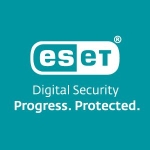What is our primary use case?
We work with highly sensitive documents and data, so we use the solution because of its sandboxing. It's used in our high-security environment, everywhere else, and on people's and company-issued computers.
Initially, we had a server locally, and I don't know if we still do. Since we have home computers, we might have moved the solution to the cloud.
How has it helped my organization?
If you're just looking at an antivirus, it only knows what patterns you can see through its analytics. And by the time it figures something out, it could easily miss malware. With Comodo's sandboxing, if you download anything and malware tries to do something, Comodo doesn't know if it's safe based on analysis. It'll just block it. The malware can't do anything to your drive or anything.
What is most valuable?
The big advantage is that it has a sandbox if something bad comes into it. Comodo's sandbox protects against ransomware, advanced persistent threats, and Trojans.
What needs improvement?
The menu could be cleaned up. They rebranded it, but it's the same menu. It could also be nicer to do reports and stuff, where some services we've had used to give us more information on the threat. But overall, we're pretty happy with it.
Other than that, there are things you have to have an administrator do because the solution is complicated. However, that prevents users from doing dumb things. If you're using Comodo as a home user, it might be a war, but it's fine for businesses. It would be nice if Comodo had a home user version.
For how long have I used the solution?
We've had the solution for more than three years.
What do I think about the stability of the solution?
Comodo's stability has been pretty good. A couple of years ago, we had a lot of issues with the solution jamming up, and we had to manually do fixes and corrections. We had some problems with the updates, but so far this year, I've not had any problems with it.
I rate Comodo's stability a nine out of ten because I am worried about why we had these issues before.
What do I think about the scalability of the solution?
The solution is as scalable as you want it to be. Some of our customers have several thousand users. In our organization, everybody in office administration uses Comodo.
I rate Comodo's scalability a ten out of ten.
Which solution did I use previously and why did I switch?
We've used Symantec, and some of our machines still have Symantec. We've used some other security vendors as well. We also have active monitoring. We use several other tools for network protection. For endpoint protection, it's mostly Symantec at this point. And Comodo/Xcitium.
We switched to Xcitium because we found that stuff could get through Symantec but not Xcitium. We still like Symantec, but some of its services, like safe web browsing and stuff like that, keep people only going to what has been whitelisted. When people work at home outside the office, this is important. Inside the office, we have firewalls that black and whitelist websites. They can't go to it if it's not a known site or in a certain category. We've got whitelists at the office side, but they don't usually have firewalls at home, so we must rely on Symantec.
How was the initial setup?
I rate the initial setup a ten out of ten, but we have experts who know how to do these sorts of things, so it's not a challenge for us.
Our IT security people set up new computers, put them on servers, and then it goes out the door. We have one role that maintains, watches, and administers it. We also have other people who can administer it. Our head of security takes care of these kinds of tools.
What was our ROI?
The return on investment for this product is really good. I rate Comodo's ROI a seven or eight out of ten.
What's my experience with pricing, setup cost, and licensing?
I rate Comodo's pricing a four out of ten.
What other advice do I have?
We've often used Comodo on many machines, combining it with Symantec. We have a malware laboratory, and we like Comodo because it holds up pretty well against the competition. We've done tests with real live malware, and Comodo/Xcitium does a pretty good job of catching things even when it doesn't know what it is. When we mutate viruses and run them, we can sneak them by other apps, but if Xcitium sees something suspicious writing to your disk, it just sandboxes it. However, it can be annoying if you're playing games on your computer 'cause Comodo doesn't know what it is. It acts like it's doing something and grabs it.
Comodo cannot handle users doing something they shouldn't be doing, like accessing or transferring files that they shouldn't be transferring. Information leakage is a gap.
We're using people level six and seven on the European foundation level for skill sets, so they know how to administer this stuff. They all have ten-plus years of experience in this particular area of security. It doesn't take them long to run anything.
Xcitium is a good choice for users considering Xcitium for their company since it can stop ransomware effectively. I rate Xcitium a ten out of ten.
Disclosure: My company does not have a business relationship with this vendor other than being a customer.




















